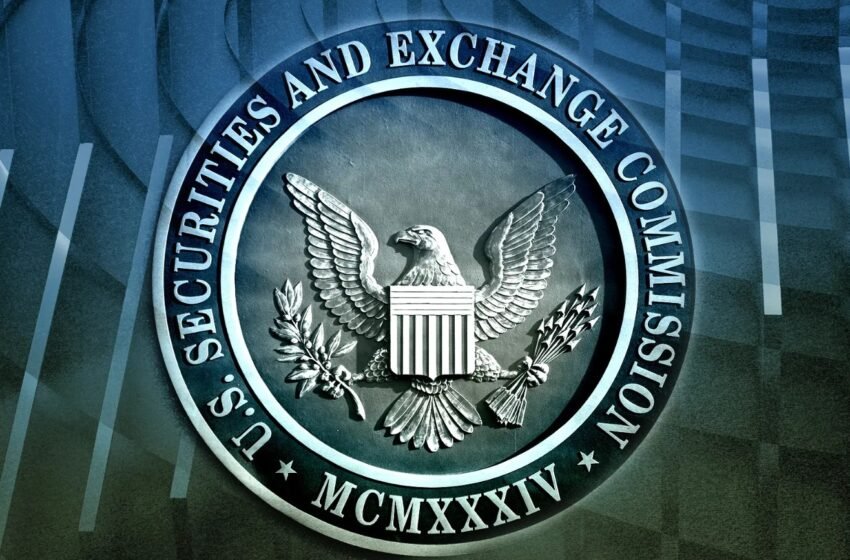SEC Targets Crypto Lender, Levies $3 Million Fines in Enforcement Action
(Originally posted on : Crypto News – iGaming.org )
Charges for failing to register the offer and sale of a cryptocurrency financing product have been unveiled by the U.S. Securities and Exchange Commission (SEC) against TradeStation Crypto, a crypto brokerage firm with its headquarters located in Florida.
TradeStation agreed to resolve the lawsuit by paying fines totaling $3 million, as disclosed by the SEC when it published the claims on Wednesday.
TradeStation did not acknowledge or refute the allegations, but rather consented to a $1.5 million fine, according to the SEC. Furthermore, in order to settle comparable accusations made by state-level regulatory bodies, the company agreed to pay an additional $1.5 million, which doubled its overall penalty.
The SEC’s statement clarified, “The order finds TradeStation offered and sold the crypto lending product with the interest feature as a security, and, since it did not qualify for a registration exemption, TradeStation was required to register its offer and sale but failed to do so.”
TradeStation had voluntarily ceased offering and selling the interest feature to investors in 2022, according to the regulator’s statement.
New players only. Exclusive 111% Welcome Bonus + 111 Free Spins
A Brief Overview
Commission-free stock, exchange-traded fund (ETF), futures, and option trading has been offered by TradeStation since its establishment in 1982. With its trading platform, it entered the cryptocurrency market in 2019 and at first only provided a small range of virtual currencies, such as Bitcoin (BTC) and Ethereum (ETH).
The SEC has been ruthlessly pursuing firms that provide digital assets that it believes to be unregistered securities. The case of TradeStation highlights the agency’s jurisdiction over a wider range of organizations in the crypto industry, even though large crypto exchanges and platforms have been subject to significant fines for selling specific digital currencies and tokens.
Businesses in the cryptocurrency field are forced to follow strict compliance guidelines in order to avoid suffering similar penalties as regulatory oversight increases.







 Bitcoin
Bitcoin  Ethereum
Ethereum  Tether
Tether  XRP
XRP  USDC
USDC  Solana
Solana  TRON
TRON  JUSD
JUSD  Dogecoin
Dogecoin  Lido Staked Ether
Lido Staked Ether  Figure Heloc
Figure Heloc  WhiteBIT Coin
WhiteBIT Coin  Bitcoin Cash
Bitcoin Cash  Cardano
Cardano  USDS
USDS  Hyperliquid
Hyperliquid  Wrapped stETH
Wrapped stETH  LEO Token
LEO Token  Canton
Canton  Wrapped Bitcoin
Wrapped Bitcoin  Ethena USDe
Ethena USDe  Binance Bridged USDT (BNB Smart Chain)
Binance Bridged USDT (BNB Smart Chain)  Chainlink
Chainlink  Monero
Monero  Stellar
Stellar  USD1
USD1  Wrapped eETH
Wrapped eETH  Dai
Dai  Litecoin
Litecoin  sUSDS
sUSDS  Avalanche
Avalanche  Hedera
Hedera  Zcash
Zcash  Coinbase Wrapped BTC
Coinbase Wrapped BTC  Sui
Sui  PayPal USD
PayPal USD  Shiba Inu
Shiba Inu  WETH
WETH  Toncoin
Toncoin  Cronos
Cronos  Rain
Rain  USDT0
USDT0  MemeCore
MemeCore  World Liberty Financial
World Liberty Financial  Tether Gold
Tether Gold  PAX Gold
PAX Gold  Polkadot
Polkadot  Uniswap
Uniswap  Mantle
Mantle  Ethena Staked USDe
Ethena Staked USDe  Bitget Token
Bitget Token  BlackRock USD Institutional Digital Liquidity Fund
BlackRock USD Institutional Digital Liquidity Fund  Falcon USD
Falcon USD  Aave
Aave  Pepe
Pepe  OKB
OKB  Bittensor
Bittensor  Circle USYC
Circle USYC  Global Dollar
Global Dollar  Ripple USD
Ripple USD  HTX DAO
HTX DAO  syrupUSDC
syrupUSDC  Sky
Sky  NEAR Protocol
NEAR Protocol  Internet Computer
Internet Computer  Ethereum Classic
Ethereum Classic  Aster
Aster  Pi Network
Pi Network  BFUSD
BFUSD  Ondo
Ondo  MYX Finance
MYX Finance  Pump.fun
Pump.fun  Worldcoin
Worldcoin  Gate
Gate  KuCoin
KuCoin  Ethena
Ethena  Jupiter Perpetuals Liquidity Provider Token
Jupiter Perpetuals Liquidity Provider Token  POL (ex-MATIC)
POL (ex-MATIC)  Cosmos Hub
Cosmos Hub  USDD
USDD  Superstate Short Duration U.S. Government Securities Fund (USTB)
Superstate Short Duration U.S. Government Securities Fund (USTB)  Jito Staked SOL
Jito Staked SOL  Midnight
Midnight  Algorand
Algorand  Aptos
Aptos  USDtb
USDtb  Binance-Peg WETH
Binance-Peg WETH  Rocket Pool ETH
Rocket Pool ETH  Official Trump
Official Trump  Binance Bridged USDC (BNB Smart Chain)
Binance Bridged USDC (BNB Smart Chain)  NEXO
NEXO  Filecoin
Filecoin  Wrapped BNB
Wrapped BNB  Janus Henderson Anemoy AAA CLO Fund
Janus Henderson Anemoy AAA CLO Fund